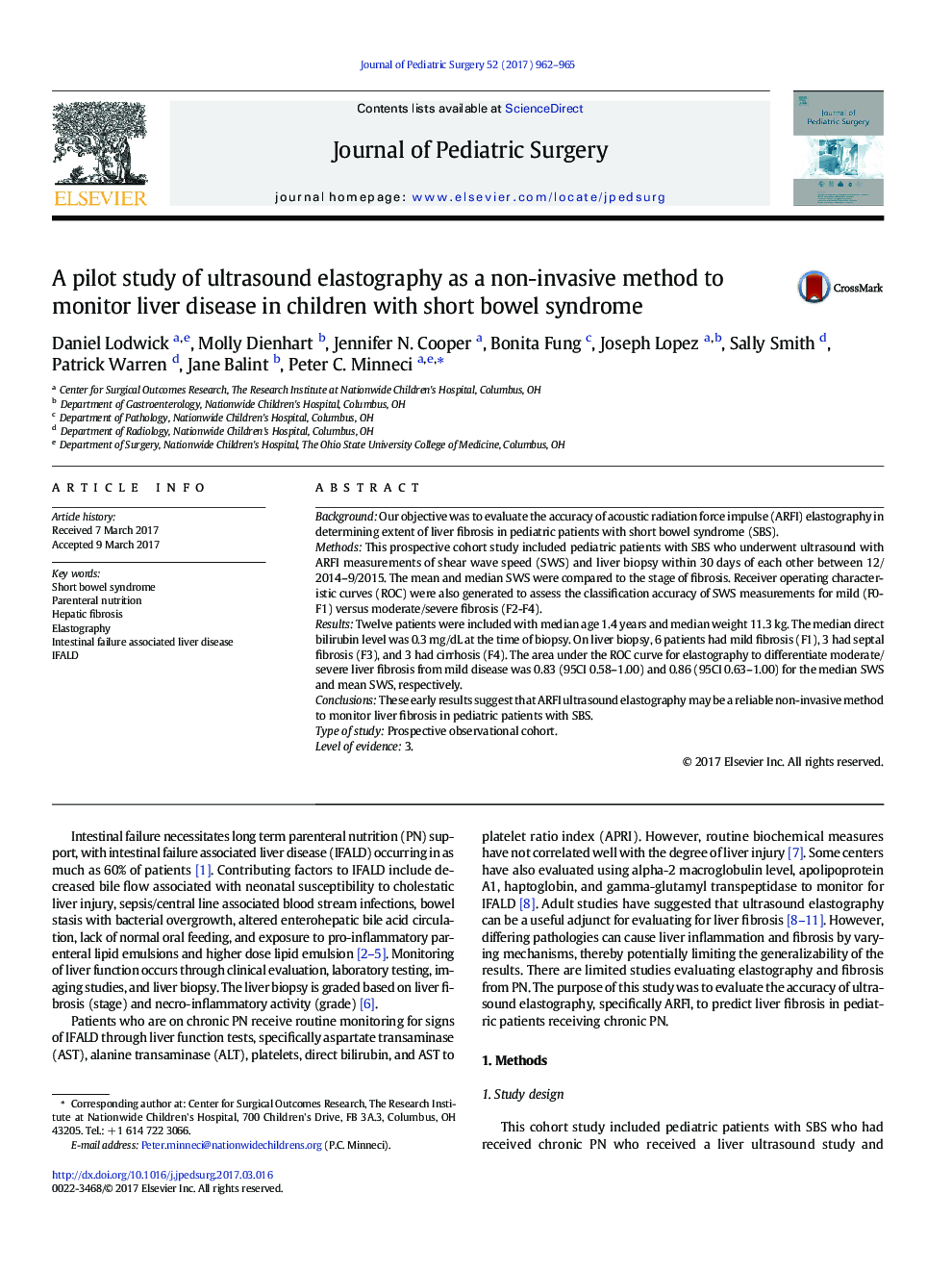| Article ID | Journal | Published Year | Pages | File Type |
|---|---|---|---|---|
| 5718500 | Journal of Pediatric Surgery | 2017 | 4 Pages |
BackgroundOur objective was to evaluate the accuracy of acoustic radiation force impulse (ARFI) elastography in determining extent of liver fibrosis in pediatric patients with short bowel syndrome (SBS).MethodsThis prospective cohort study included pediatric patients with SBS who underwent ultrasound with ARFI measurements of shear wave speed (SWS) and liver biopsy within 30Â days of each other between 12/2014-9/2015. The mean and median SWS were compared to the stage of fibrosis. Receiver operating characteristic curves (ROC) were also generated to assess the classification accuracy of SWS measurements for mild (F0-F1) versus moderate/severe fibrosis (F2-F4).ResultsTwelve patients were included with median age 1.4Â years and median weight 11.3Â kg. The median direct bilirubin level was 0.3Â mg/dL at the time of biopsy. On liver biopsy, 6 patients had mild fibrosis (F1), 3 had septal fibrosis (F3), and 3 had cirrhosis (F4). The area under the ROC curve for elastography to differentiate moderate/severe liver fibrosis from mild disease was 0.83 (95CI 0.58-1.00) and 0.86 (95CI 0.63-1.00) for the median SWS and mean SWS, respectively.ConclusionsThese early results suggest that ARFI ultrasound elastography may be a reliable non-invasive method to monitor liver fibrosis in pediatric patients with SBS.Type of studyProspective observational cohort.Level of evidence3.
